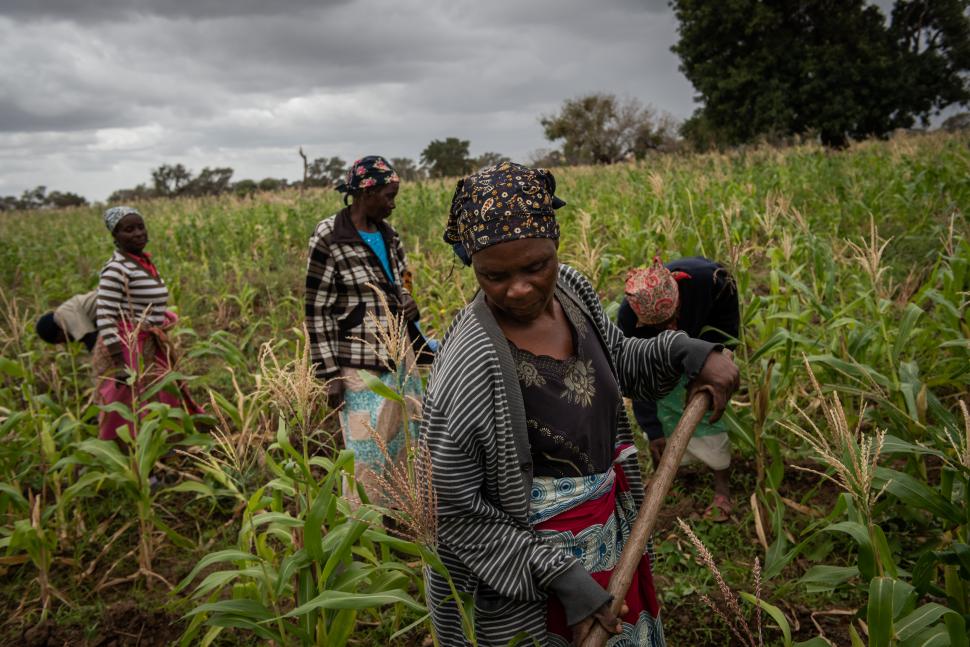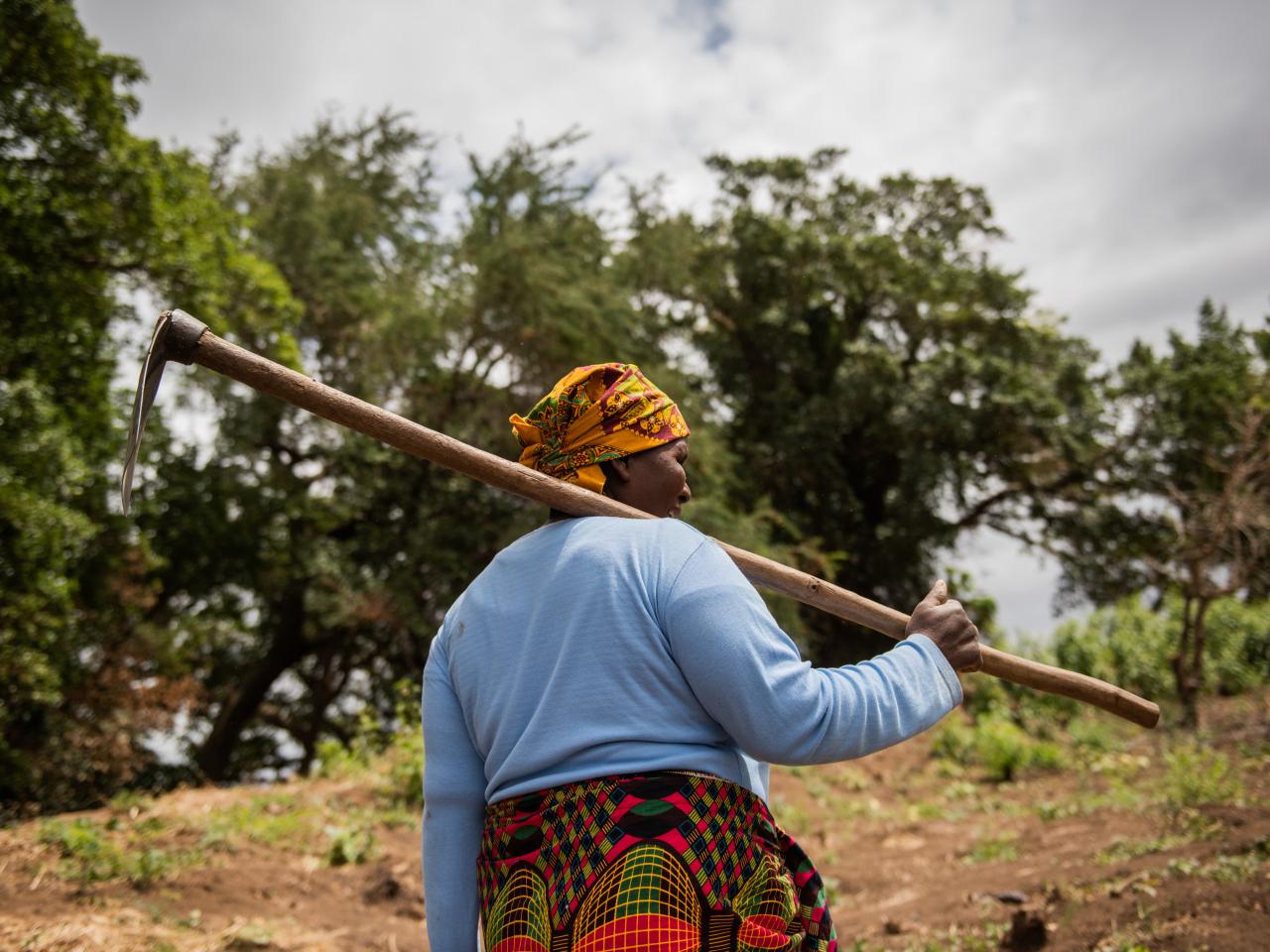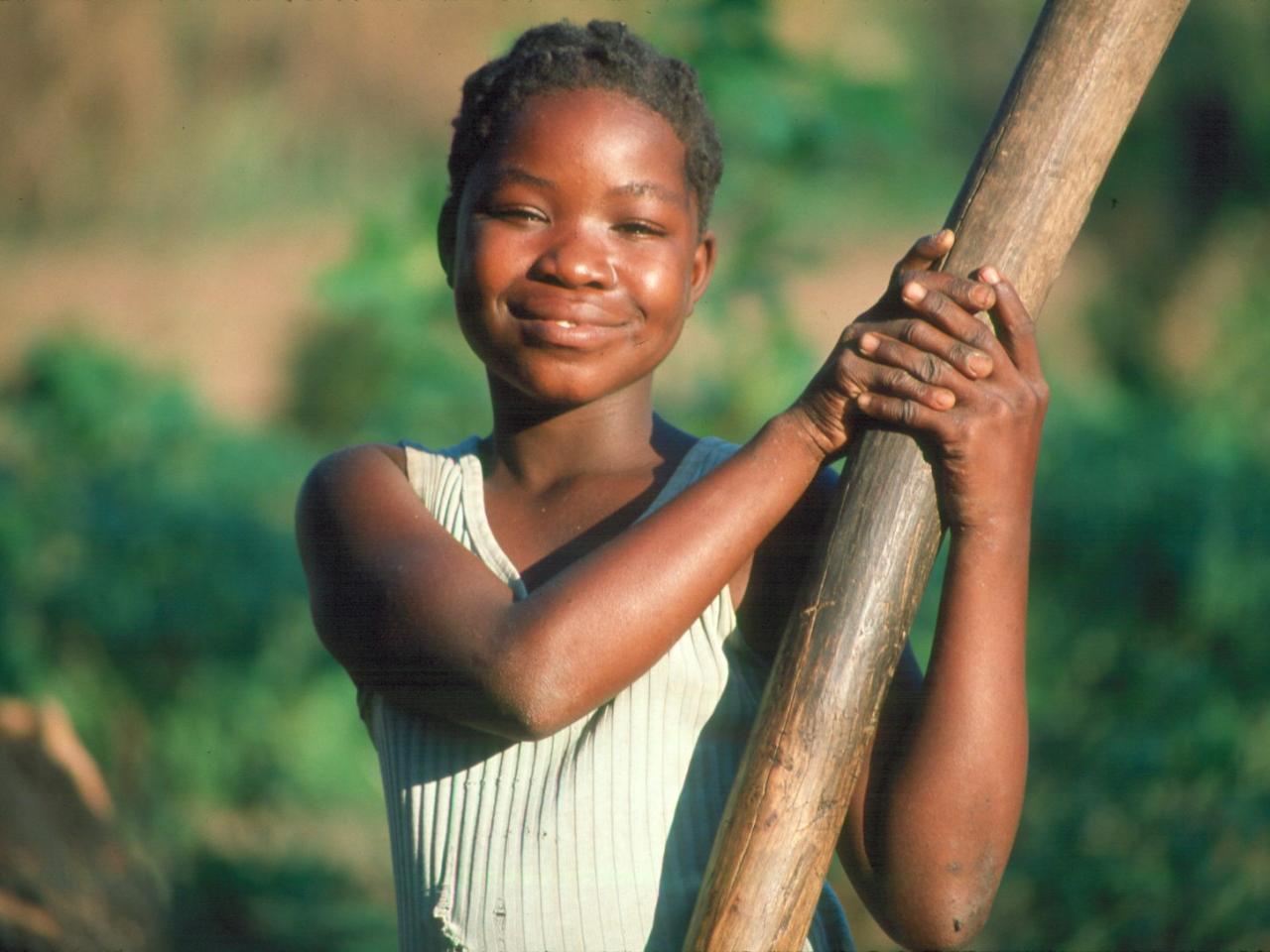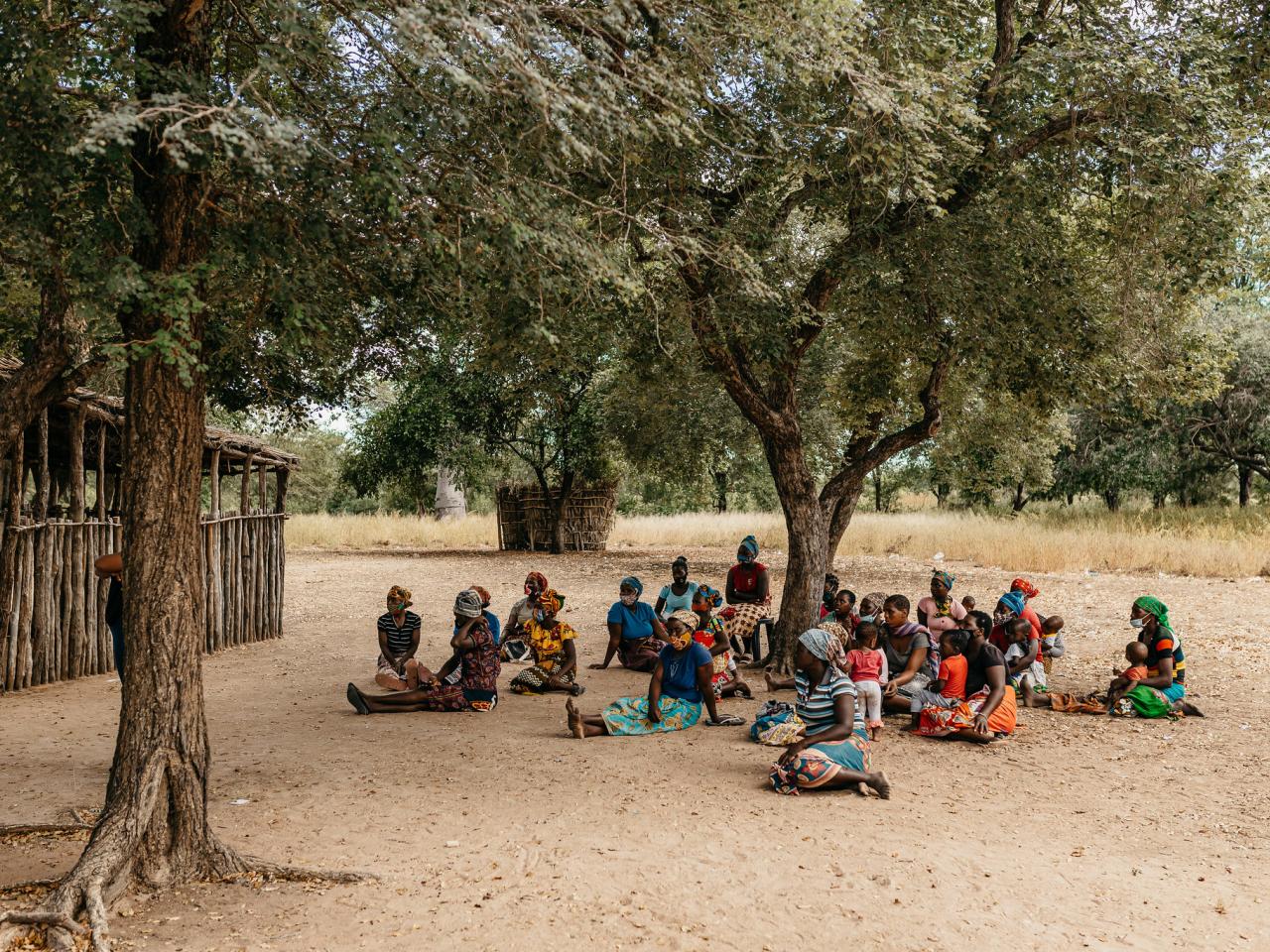“She’s an inspiration to the community” – overcoming marginalization through business in rural Mozambique
MAPUTO, Mozambique - Edma Fernando, 25, is a person with albinism, a single mother of two and one of the most successful farmers in her neighborhood. However, this was not always the case.
Coming from a humble family who lived on subsistence agriculture, Ms. Fernando faced multiple forms of marginalization while growing up due to her genetic condition and remoteness. When her partner abandoned her, leaving her to raise two children on her own, Ms. Fernando did not have a livelihood and turned to her family for help. Luckily, her parents were very supportive and provided her with housing and food.
"Despite all the challenges she faced, today Ms. Fernando is an independent woman and an inspiration to her community" - Felismina Dengo, Gender Links' economic empowerment programme coordinator in Moma district
“Despite all the challenges she faced, today Ms. Fernando is an independent woman and an inspiration to her community,” said Felismina Dengo, who coordinates Gender Links’ economic empowerment programme in the district.
From subsistence to commercial agriculture
In 2020, Ms. Fernando was invited by Spotlight Initiative civil society partner Gender Links to participate in a training on entrepreneurship, as part of a group of 20 vulnerable women in the coastal Moma district, Nampula province, northern Mozambique.
During the training, Ms. Fernando learned how to run a small business, to access markets and to save money. She also received a small grant from Gender Links and invested it in her family’s field. Determined to switch from subsistence to commercial farming, she bought sesame seeds, worked hard and, a year later, together with her family she grew one of the biggest sesame fields in the area.
“I can only go to the field early in the morning, before the sun is too hot,” says Ms. Fernando.
She now sells the sesame at a local fair, where wholesalers from across the province come to buy her product – a crop of high commercial value in Mozambique.
With the proceeds of her sales, Ms. Fernando was able to buy a motorcycle which allows her to access markets more quickly. With the extra income, Ms. Fernando and her family also diversified their crops and improved the whole family’s nutrition.
“Now I can raise my children on my own,” said Ms. Fernando.
Overcoming violence and marginalization through economic empowerment
Ms. Fernando is one among over nine million rural women in Mozambique, according to the 2017 Population Census. They represent more than 34 percent of Mozambique’s population and most of them work in agriculture - the main source of income for more than 70 per cent of Mozambicans.
These women play a crucial role in growing food and generating income for their families. Yet, most have little access to or control over productive resources due to a deeply ingrained patriarchal social structure, where gender-based violence also finds its roots.
To support vulnerable women and girls, including survivors of violence and their families, Spotlight Initiative partners in Mozambique have supported over 1,800 women engage in economic empowerment activities since 2020 - surpassing its goal of helping 1,500 women throughout the programme’s four year duration.
“I encourage all women to stand firm in their own projects, just like I have been encouraged to stand firm in mine” - Edma Fernando, farmer
Among them are survivors of gender-based violence, child marriage and fistula, women living with HIV, as well as women with disabilities and albinism – some of the most marginalized in the country.
By accessing economic opportunities and learning how to run small businesses, these women are finding alternatives and livelihoods that support their long term recovery, often overcoming their dependence on abusive partners.
“I encourage all women to stand firm in their own projects, just like I have been encouraged to stand firm in mine,” said Ms. Fernando.
By Leonor Costa Neves, with reporting by Laura Lambo




